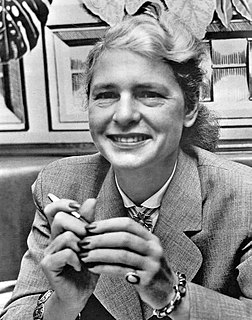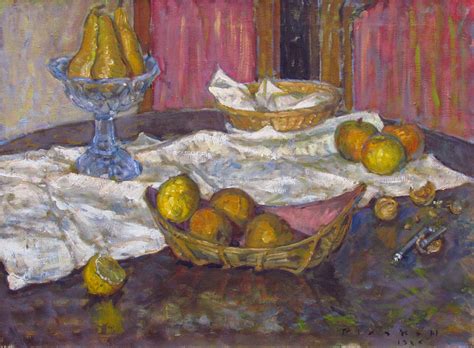A Quote by Margaret Bourke-White
The element of discovery is very important. I don't repeat myself well. I want and need that stimulus of walking forward from one new world to another. There is something demoralizing about going back to a place to retake pictures. You can no longer see your subjects in a fresh eye; you keep comparing them with the pictures you hold in your memory. [The] world was full of discoveries waiting to be made...(as a photographer) I could share the things I saw and learned...you would react to something all others might walk by.
Quote Topics
About
Another
Back
Comparing
Could
Demoralizing
Discoveries
Discovery
Element
Eye
Forward
Fresh
Full
Going
Hold
Important
Keep
Learned
Longer
Made
Memory
Might
Myself
Need
New
New World
Others
Photographer
Pictures
Place
React
Repeat
Saw
See
Share
Something
Stimulus
Subjects
Them
Things
Very
Waiting
Walk
Walking
Walking Forward
Want
Well
World
Would
Your
Related Quotes
When you work fast, what you put in your pictures is what your brought with yoiu - your own ideas and concepts. When you spend more time on a project, you learn to understand your subjects. There comes a time when it is not you who is taking the pictures. Something special happens between the photographer and the people he is photographing. He realizes that they are giving the pictures to him.
When you are young, you always expect that the world is going to end. And then you get older and the world still chugs along and you are forced to re-evaluate your stance on the apocalypse as well as your own relationship to time and death. You realize that the world will indeed continue, with or without you, and the pictures you see in your head. So you try to understand the pictures instead.
Emotion operates, very often when you think about how you react to the world, you know, something is happening to you, you're simply going along and you're being confronted by different things, not necessarily very important or significance for your ultimate life, but you are constantly reacting to the world.
Don't keep forever on the public road, going only where others have gone. Leave the beaten track occasionally and dive into the woods. You will be certain to find something you have never seen before. Of course it will be a little thing, but do not ignore it. One discovery will lead to another, and before you know it, you will have something worth thinking about to occupy your mind, and really big discoveries are the result of thought.
And that desire-the strong desire to take pictures-is important. It borders on a need, based on a habit: the habit of seeing. Whether working or not, photographers are looking, seeing, and thinking about what they see, a habit that is both a pleasure and a problem, for we seldom capture in a single photograph the full expression of what we see and feel. It is the hope that we might express ourselves fully-and the evidence that other photographers have done so-that keep us taking pictures.
I would walk into the Carnegie Library and I would see the pictures of Booker T. and pictures of Frederick Douglass and I would read. I would go into the Savannah Public Libraries in the stacks and see all of the newspapers from all over the country. Did I dream that I would be on the Supreme Court? No. But I dreamt that there was a world out there that was worth pursuing.
It would be so easy to lose the plot now. It's not about achieving something for its own sake, and taking pictures for their own sake. But to make conscious decisions and choices, and it includes this constant questioning - Why am I taking pictures? Because really, the world is... it has pictures enough. I mean, there are enough pictures out there.
I had always made pictures as I thought I saw the world, focusing on what lay in front, but this is not how one sees the world. It only frames the centre and cuts off the lateral vision, which lies unfocused. Now I found that I could turn my eye to the adjacent field of vision, seeing another focus, an extension which I added to the original. Instead of stopping at two focuses, I looked further to the side, adding another and yet another.
I can appreciate the idea that with e-books more people would publish, the work would be easier to disseminate, and that it could even be interactive. Being a lover of photography, I especially like the idea that you could include lots of pictures - full-color pictures - with your writing. That to me is exciting! We'll all have to stay tuned to see what develops.
































